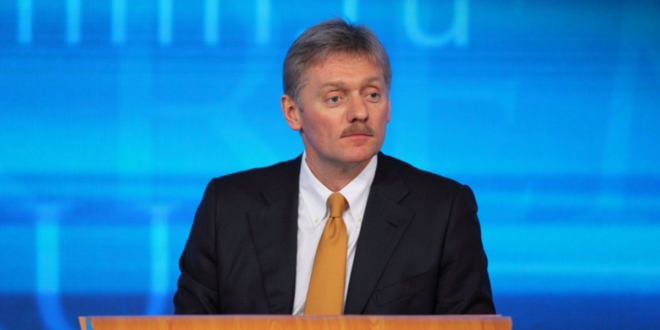Replacing Kaliningrad’s name with Królewiec, the city’s original name from the Middle Ages, is madness, the Kremlin said after the Polish geographical standard body’s decision was made public.
In 1945, the city was placed under Soviet administration under the Potsdam Agreement and in 1946, it was renamed Kaliningrad after Russian Bolshevik leader Mikhail Kalinin, one of the six Soviet signatories of an order to execute over 21,000 Polish prisoners of war in 1940.
In its announcement published on Tuesday, the Polish Commission on the Standardisation of Geographical Names (KSNG) recommended using the name Królewiec, a Polish version of the name given to the newly-founded city in the 13th century by the Teutonic Order, to whom the territory then belonged, rather than Kaliningrad.
“This is not even Russophobia any longer; these are processes that verge on the madness that is taking place in Poland,” Kremlin spokesman Dmitry Peskov said, as quoted by TASS.
Explaining the reasons for the new recommendation, the KSNG said the city is historically known in Poland under its original name, Królewiec.
Naming such a big city close to Poland after Mikhail Kalinin, “a criminal” that was jointly liable for the murder of Polish officers in the Katyn forest, among other things, is “artificial and unrelated neither to the city itself nor the region.”
Current political circumstances were also cited as the reason for the recommendation, as the Commission said Russia’s invasion of Ukraine and Moscow’s information warfare should provoke renewed discussion about the names imposed by Russia.
Backlash in Russia
Replacing the city’s name also sparked harsh reactions from former Russian president and prime minister Dmitry Medvedev. Should Poland not like the name Kaliningrad, the names of Polish cities previously occupied by Germany should be replaced by German ones, he said, quoted by TASS.
To provide a few examples, he proposed to use the name Danzig instead of Gdansk, Stettin instead of Szczecin, or Breslau instead of Wroclaw, and the Kingdom of Poland “as part of the Russian Federation,” referring to the country’s name from the time when Poland was under the Russian Empire’s occupation, from 1815 to early 20th century.
The decision to call Kaliningrad by its name Królewiec does not change anything from a practical point of view, Russian Ambassador to Poland Sergey Andreev told Solovyov LIVE TV channel.
“There were similar attempts” to replace the name in the past, with some politicians using the name Królewiec, even if it was not an official name, he added.
“Whatever you call it. When I am asked about Królewiec or Królewiec Oblast’, I say I do not understand what is being referred to,” he said.
But according to government spokesman Dmitry Peskov, the official place name is Kaliningrad, and anything else is insinuation, he told TASS on Wednesday.
He added that Russia could also use German names of Polish cities, as suggested by Medvedev, but they respect official place names and demand that others do the same.
A symbolic change
According to the Polish Development and Technology Ministry, replacing the name was an initiative by local governments, supported by the Development Ministry and the Foreign Ministry, to return to the traditional, historic nomenclature of geographical names.
The change is purely symbolic and does not refer to country affiliation, the ministry said in its official announcement. Still, Polish maps will feature the name Królewiec from now on.
Contrary to the statements by both KSNG and the Development Ministry, Marcin Przydacz, the head of the Polish President’s International Policy Bureau, denied any political motivations for the change.
For hundreds of years, the city has been called Królewiec in Polish, Przydacz said, referring to the Kremlin “to the basics of history.”
City named after the Czech king by warrior monks
The city was founded in the mid-13th century on the site of the ancient Old Prussian settlement Twangste by the Teutonic Knights during the Northern Crusades and was named Königsberg in honour of King Ottokar II of Bohemia, who helped the Teutonic Order to conquer the Prussian tribes’ territories.
Until the 1500s, the city was one of the States of the Teutonic Order, a key urban centre, and the capital of the Order’s Great Master between 1457 and 1525. Until World War II, it remained under Prussian and then German rule.
After the Soviet Union captured Królewiec on 9 April 1945, the Potsdam Agreement of 1945 placed it under Soviet administration.
 Eurasia Press & News
Eurasia Press & News




